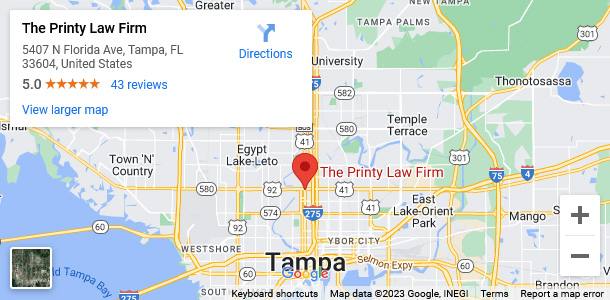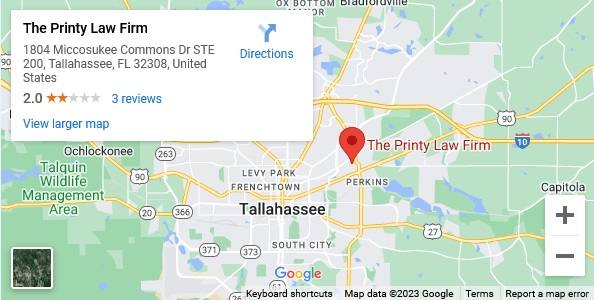Discrimination Claim: EEOC Pt. 2
If the victim is a federal employee or job applicant, the complaint process is different. They generally have to contact an agency EEO counselor within 45 days of the violation (this timeframe can be extended under certain circumstances.) The agency will launch an investigation and render a decision. The claimant can participate in a hearing, appeal the decision to EEOC, and/or challenge it in federal district court. Different deadlines apply to this process.
“Right to Sue” window
A claimant’s window to file an employment discrimination lawsuit in federal court may open as early as immediately after the discrimination takes place, or after 60 days or 180 days (sometimes later) after filing a charge with EEOC, depending on the charge filed and the applicable law. For example, claimants who file a charge under Title VII (discrimination based on race, color, religion, sex and national origin), or under the Americans with Disabilities Act (ADA) must have a Notice of Right To Sue from EEOC before they can file a lawsuit in federal court. EEOC generally takes about 180 days to resolve a charge, but if the case is complex or involves multiple charges, it may take longer. Sometimes the EEOC may issue a Notice of Right To Sue before the 180 days.
In addition, charges filed under the Age Discrimination in Employment Act (ADEA) (discrimination based on age 40 and above) do not need an EEOC Notice of Right to Sue. The claimant may file a lawsuit in federal court 60 days after filing the charge with EEOC. Further, charges filed under the Equal Pay Act (EPA) (wage discrimination based on sex), the claimant does not need an EEOC Notice of Right To Sue and may proceed to file a lawsuit in federal court within two years from the day he or she received the last discriminatory paycheck.
Where to file
While a claimant may file in any of the EEOC offices distributed across the United States, including any of the 53 EEOC district offices, the charge will be investigated by the office closest to where the discrimination occurred.
To prevent duplication of efforts, the EEOC has contracts with the Fair Employment Practice Agencies (FEPAs) and the Tribal Employment Rights Offices (TEROs) in each state to manage charges of discrimination. Charges filed with one entity will also be filed automatically with the other, protecting the claimant’s rights under federal and state law. Florida has a number of FEPA offices across the state. There are also offices in the Virgin Islands and Puerto Rico.
The assistance of a legal professional can be beneficial for victims in deciding whether to file a charge, when and where to file, as well as assessing the applicable law to a discrimination situation in order to maximize a recovery. It can also benefit employers wishing to create a discrimination-free work environment through sound policies and training, or employers who find themselves in the difficult position of defending a discrimination charge.
Time limits for equal pay discrimination
Victims of sex discrimination on the basis of unequal pay or wages can file a charge under Title VII and also under the EPA. Unlike a claim under Title VII, when filing under the EPA the victim does not need to file a charge of discrimination with the EEOC. Victims are allowed to file a lawsuit directly in court. However, in order to file under Title VII, the claim must be filed with EEOC before the EPA lawsuit is filed. The time limit to file a lawsuit under the EPA is two years from the day the victim received the last discriminatory paycheck. This deadline is extended to three years in the presence of willful discrimination. Coordinating the deadlines between the two options can be challenging.
Federal Employees
If the victim is a federal employee or job applicant, the complaint process is different. They generally have to contact an agency EEO counselor within 45 days of the violation (this timeframe can be extended under certain circumstances.) The agency will launch an investigation and render a decision. The claimant can participate in a hearing, appeal the decision to EEOC, and/or challenge it in federal district court. Different deadlines apply to this process.
“Right to Sue” window
A claimant’s window to file a discrimination lawsuit in federal court may open as early as immediately after the discrimination takes place, or after 60 days or 180 days (sometimes later) after filing a charge with EEOC, depending on the charge filed and the applicable law. For example, claimants who file a charge under Title VII (discrimination based on race, color, religion, sex and national origin), or under the Americans with Disabilities Act (ADA) must have a Notice of Right To Sue from EEOC before they can file a lawsuit in federal court. EEOC generally takes about 180 days to resolve a charge, but if the case is complex or involves multiple charges, it may take longer. Sometimes the EEOC may issue a Notice of Right To Sue before the 180 days.
In addition, charges filed under the Age Discrimination in Employment Act (ADEA) (discrimination based on age 40 and above) do not need an EEOC Notice of Right to Sue. The claimant may file a lawsuit in federal court 60 days after filing the charge with EEOC. Further, charges filed under the Equal Pay Act (EPA) (wage discrimination based on sex), the claimant does not need an EEOC Notice of Right To Sue and may proceed to file a lawsuit in federal court within two years from the day he or she received the last discriminatory paycheck.
Where to file
While a claimant may file in any of the EEOC offices distributed across the United States, including any of the 53 EEOC district offices, the charge will be investigated by the office closest to where the discrimination occurred.
To prevent duplication of efforts, the EEOC has contracts with the Fair Employment Practice Agencies (FEPAs) and the Tribal Employment Rights Offices (TEROs) in each state to manage charges of discrimination. Charges filed with one entity will also be filed automatically with the other, protecting the claimant’s rights under federal and state law. Florida has a number of FEPA offices across the state. There are also offices in the Virgin Islands and Puerto Rico.
The assistance of a legal professional can be beneficial for victims in deciding whether to file a charge, when and where to file, as well as assessing the applicable law to a discrimination situation in order to maximize a recovery. It can also benefit employers wishing to create a discrimination-free work environment through sound policies and training, or employers who find themselves in the difficult position of defending a employment discrimination charge –Burruezolaw
If you have questions regarding a legal matter call the best employment discrimination lawyer Tampa has to offer, schedule a FREE Confidential Consultation by calling Printy Law Firm at Tampa: 813-434-0649 | Tallahassee: 850-877-7299 or submitting a request.





